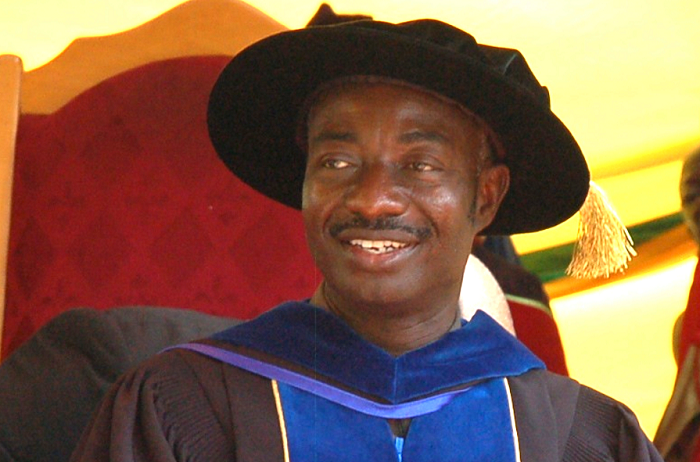
All Nations University to hold presidential debate
In view of the uncertainties surrounding this year’s presidential election debates, the All Nations University College (ANUC) has stepped in to organise a debate for all presidential candidates to share their vision for Ghana with the electorate.
The maiden edition of the debate, which will be held on the theme “Decision 2016”, has been scheduled to take place on the main campus of the ANUC in Koforidua on Monday, November 21, 2016.
In a statement issued in Accra and signed by the President of the ANUC, Dr Samuel Donkor, the university said since 2000, presidential debates had been organised in the country to underpin the country’s general election and provide opportunity for the electorate to make informed choices.
However, it said there were so many uncertainties surrounding this year’s presidential and parliamentary election debates.
Step in the void
“All Nations University, as an institution of higher learning, wants to step in the void to organise the debate for Ghanaians and the world to hear about the plans that the aspiring leaders have for Ghana,” it said.
The statement said in the United States of America ( USA) and in other democracies, such debates were organised by universities as a social science to enlighten the electorate about who their leaders were and what they stood for in terms of their agenda for the country.
It said institutions of higher learning were citadels of knowledge and enlightenment, and the ANUC was committed to “shining the light on the 2016 presidential candidates’ vision for Ghana.”
“We ask all media houses, corporations, institutions, political parties, non-governmental agencies, churches and the general public to support this initiative to help strengthen the democratic journey towards free, fair and peaceful elections,” the statement added.
Enhancing election participation
Reached for his comments, Dr Donkor said debates excited the electorate, thereby enhancing participation in the election process.
He said low voter turnout undermined the legitimacy of an elected government.
According to him, debates such as the one planned by the ANUC revived voter interest in the elections, besides the general benefit of knowing the visions of the presidential candidates.
“Debates teach the youth about the democratic process. They are about articulation of ideas and the ability to convince the electorate. This will encourage them to respect dissenting views and to educate the public about the candidates’ vision for the country,” Dr Donkor said.
Rationale for debates
He said debates offered voters anatomical views of their candidates which was difficult to gauge by well written speeches, and aratory that dazzled voters
Dr Donkor said the debates enabled voters to know the kind of leaders who were asking for their mandate.
“The quality of their vision for the nation is exposed through debates because in politics, good speeches can easily catapult a candidates into office.
“However, debates expose the quality of a candidate’s mind and his or her ability to lead and solve the nation’s problems. Thus, helping people to make informed decisions about who to vote for,” he said.
Dr Donkor explained that debates exposed how well prepared a candidate was for the job, whether he or she was only day dreaming or understood the challenges the national faced.
“Lack of debates in African elections have led to poor choices with devastating effects on the continent. Leaders without well thought out plans are simply unprepared for such task to help build Africa,” he said.
According to him, debates would help the electorate to compare the aspirants’ economic, foreign and other polices and thus help the voters to choose the best.
Similar debates
For almost a decade, the Institute of Economic Affairs (IEA) has provided leadership in organising presidential debates. However, the initiative by the IEA to organise this year’s presidential debate has been fraught with challenges.
The National Democratic Congress (NDC) and the New Patriotic Party (NPP) have declined to participate in this year’s presidential debate being planned by the IEA ahead of the December 7 polls.
The IEA has advertised on its website that the first 2016 presidential debate will be held on November 8, 2016 in Tamale, while the second is scheduled for November 25, 2016.
However, the Deputy General Secretary of the NDC, Mr Koku Anyidoho, said the party had earlier explained to the IEA that it was unable to do so because it had already committed itself to participating in a similar debate to be organised by the state broadcaster, the Ghana Broadcasting Corporation (GBC), and the National Commission for Civic Education (NCCE).
On the part of the NPP, a former Youth Organiser of the party and parliamentary candidate for Lawra, Mr Anthony Abayifa Karbo, said the party would maintain its position not to participate in any presidential debate in the late hours of the party’s campaign.
He explained that the campaign schedule of Nana Addo Dankwa Akufo-Addo was very tight, while other party machinery was also busy campaigning in the rural areas.
